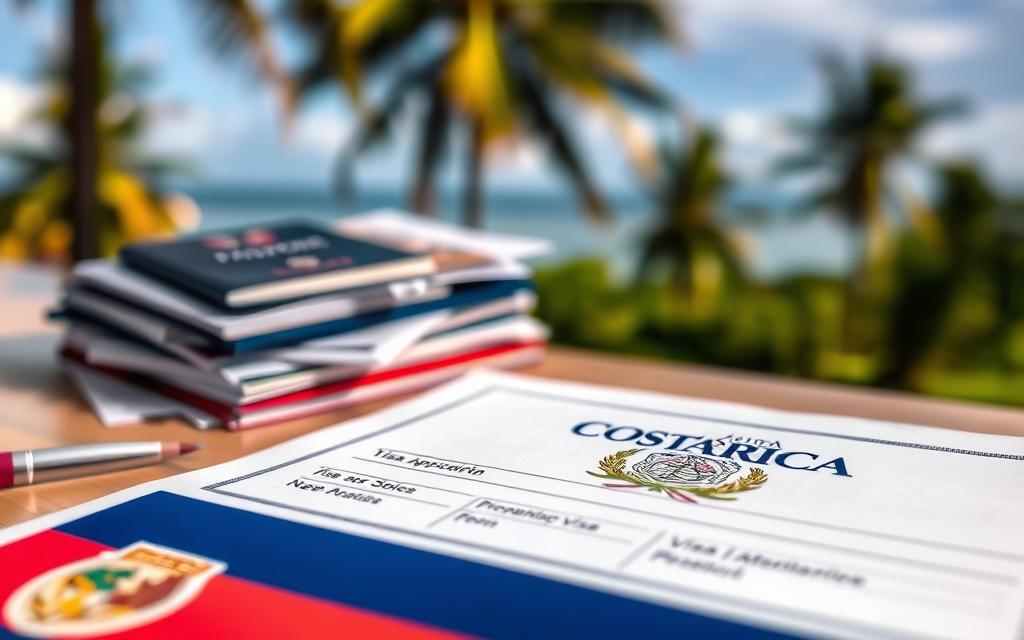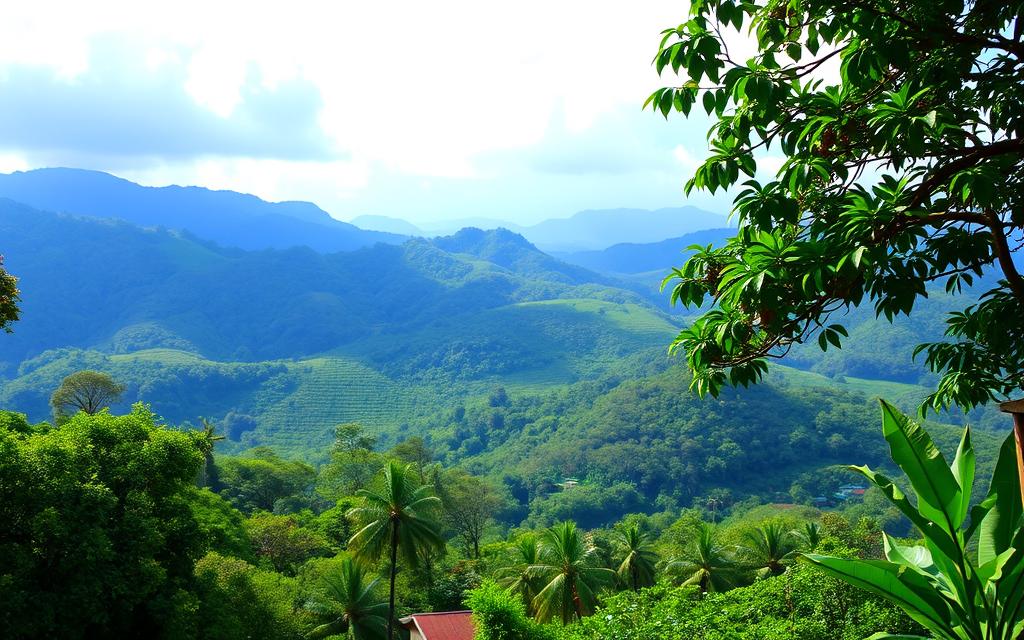As a hub for international workers and service providers, Costa Rica has introduced Law No…

Expert Guidance: How to avoid overstaying in Costa Rica
At Costa Rica Immigration Experts (CRIE), we’ve helped numerous individuals achieve their dream of living in Costa Rica. With over 20 years of experience and thousands of successful residencies, we’re one of the oldest and most trusted immigration firms in the country.
Understanding Costa Rica’s immigration laws and visa requirements is crucial for a smooth stay. Overstaying a visa can lead to severe consequences, including financial penalties and deportation. Our team provides expert guidance on navigating these regulations, ensuring you’re always in compliance.
We’ll walk you through the process of extending your stay legally, from visa extensions to residency applications, helping you find the best solution for your situation. With our insights based on real cases and current regulations, you’ll be well-equipped to navigate Costa Rica’s immigration system successfully.
Understanding Costa Rica’s Immigration Laws

Understanding the intricacies of Costa Rica’s immigration laws is essential for both tourists and expats. These laws are designed to manage who enters and stays in the country, ensuring a smooth experience for visitors while maintaining national security.
Overview of Immigration Regulations
Costa Rica’s immigration system operates under specific regulations that determine the length of stay for visitors from different countries. For citizens of many countries, including the United States, Canada, and European Union nations, entry is typically permitted for up to 180 days without requiring a formal visa application in advance. However, the exact duration of stay is determined at the port of entry, where immigration officers have discretion to grant fewer days based on individual circumstances.
All visitors, regardless of nationality, must present a valid passport with at least six months of validity remaining and proof of onward travel when entering Costa Rica. Immigration regulations can change, so it’s essential to verify the current requirements for your specific nationality before planning your trip. For more detailed information on visa overstay rules and fines, you can visit CRIE’s guide on visa overstay.
Visa Duration for Different Nationalities
Visitors from certain countries face more restrictive entry requirements, potentially including pre-arranged visas and shorter authorized stays. For instance, individuals from India and other countries may need a visa that allows a 30-day stay, with possible extensions. The immigration stamp in your passport serves as your official authorization to remain in the country and clearly indicates your permitted length of stay.
Costa Rica’s immigration laws are designed to accommodate tourism while preventing unauthorized long-term residence. Familiarizing yourself with these regulations before arrival will help ensure a smooth entry process and legal stay throughout your time in Costa Rica.
The Consequences of Overstaying Your Visa in Costa Rica
Travelers who overstay their visa in Costa Rica may face significant penalties and complications. Overstaying a visa can cause serious problems for travelers, including financial penalties, deportation risks, and travel restrictions.
Financial Penalties and Fines
Overstaying your visa in Costa Rica can be costly. You may be required to pay fines of approximately $100 per month for each month you stay past your visa’s end date. These fines can accumulate quickly, making it essential to comply with Costa Rica’s immigration regulations.
- Fines for overstaying can be substantial, with costs adding up to $100 per month.
- The longer you overstay, the more you will owe in fines.
- Promptly addressing visa issues can help minimize financial penalties.
Deportation Risks and Legal Issues
Costa Rica takes visa violations seriously and may deport individuals who overstay their visa. Deportation proceedings can be stressful and potentially involve temporary detention. Moreover, having an overstay on your record can complicate future attempts to enter Costa Rica.
- Deportation risks increase with the length of overstay.
- Overstayers may face legal issues beyond immigration matters.
- Voluntary departure is generally preferable to formal deportation.
Impact on Future Travel and Immigration Status
Overstaying a visa in Costa Rica can have long-term consequences for your immigration status and future travel plans. Immigration status violations can affect your ability to travel to other countries, particularly those that share immigration information.
- Overstay records can impact future visa applications.
- Immigration status violations can limit travel options.
- Maintaining legal status is crucial for hassle-free travel.
Planning Your Stay Before Arriving in Costa Rica

A well-planned trip to Costa Rica not only enhances your travel experience but also helps you comply with the country’s immigration laws. To ensure a smooth entry and stay, it’s vital to understand the visa requirements and plan your timeline accordingly.
Researching Visa Requirements for Your Nationality
For citizens of the U.S., Canada, and the European Union, the maximum stay as a tourist is typically 180 days. However, immigration officers have discretion to grant fewer days based on individual cases. Researching the specific visa requirements for your nationality is crucial, as entry conditions vary significantly depending on your country of citizenship.
- Verify whether you need to apply for a visa before arrival or if you’re eligible for a tourist visa upon entry.
- Prepare all necessary documentation before travel, including a valid passport with sufficient remaining validity.
Creating a Timeline for Your Stay
When planning your timeline, be conservative in your estimates and don’t assume you’ll automatically receive the maximum allowable stay (often 90-180 days for tourists). Consider the purpose of your visit and ensure it aligns with the type of visa or entry permit you’re seeking.
- Gather evidence of financial solvency and onward travel plans to verify you don’t intend to overstay.
- Build some flexibility into your travel plans to accommodate potential changes in immigration policies or unexpected circumstances.
Monitoring Your Visa Status Effectively
To avoid the complications associated with overstaying in Costa Rica, it’s essential to monitor your visa status effectively. Your visa status determines how long you can legally remain in the country, and understanding this is crucial for planning your stay.
Understanding Your Entry Stamp and Permitted Stay
When you enter Costa Rica, the immigration officer will stamp your passport with the date by which you must leave the country. This stamp is your official authorization to stay in Costa Rica, and it’s crucial to understand its terms. The duration of your permitted stay depends on your nationality, with some nationalities being granted up to 180 days, while others may receive shorter periods, such as 90 or 30 days. For instance, citizens of the U.S. and Canada are typically granted a maximum stay of 180 days as tourists. However, immigration officers have the discretion to grant fewer days based on individual circumstances.
Setting Up Reminders for Visa Expiration
To avoid overstaying your visa, it’s vital to set up reminders for your visa expiration date. You can use digital calendar reminders, smartphone apps designed for travelers, or physical notes in your important documents to track your visa status. Setting multiple reminders well before your authorized stay expires will give you sufficient time to either prepare for departure or explore legal extension options through the official immigration resources. Regularly verifying your understanding of your visa status is also important, especially if you’ve entered and exited Costa Rica multiple times.
By actively monitoring your visa status and understanding the terms of your stay, you can avoid the risks associated with overstaying your visa in Costa Rica.
Legal Options to Extend Your Stay in Costa Rica
Costa Rica offers various pathways for extending your stay, providing flexibility for visitors with valid reasons. Extending your stay in Costa Rica can be a straightforward process if you understand the requirements and procedures.
Eligibility Requirements for Extensions
To be eligible for a visa extension in Costa Rica, you must have a valid reason for your extended stay. Common reasons include medical treatment, business activities, educational pursuits, or family circumstances. Not all visitors qualify for extensions, and approvals are granted based on specific criteria.
Required Documentation for Visa Extensions
The documentation required for a visa extension typically includes a valid passport with the entry stamp, completed application forms, proof of financial solvency, and evidence supporting your reason for extension. For instance, demonstrating access to approximately $100 per month can prove your financial stability. You can find more information on the required documents and process on our website about tourism visas in Costa Rica.
Step-by-Step Application Process
To apply for a visa extension, start by gathering the necessary documents. Then, submit your application to the Costa Rican immigration office (Dirección General de Migración y Extranjería), potentially with an in-person appointment. It’s advisable to begin the application process at least 10-15 business days before your current visa expires to allow sufficient processing time. Extensions are typically granted for up to 90 additional days.
How to Avoid Overstaying in Costa Rica Through Residency Options

For those looking to make Costa Rica their long-term home, understanding residency options is crucial. Costa Rica offers a variety of paths to residency, catering to different needs and financial situations. Whether you’re a retiree, investor, or have family ties, there’s a residency category for you.
Types of Residency Permits Available
Costa Rica has several residency permits, each designed for specific groups. The Pensionado category is ideal for retirees who can demonstrate a stable monthly income of at least $1,000 from a pension fund. The Rentista program requires a monthly income of $2,500 for five years, making it suitable for individuals with significant investment income. Investors can opt for the Inversionista category by investing at least $200,000 in a Costa Rican business or real estate. Additionally, those married to a Costa Rican or having a Costa Rican child can apply under the Relative of a Costa Rican Citizen category. Skilled workers with a job offer in Costa Rica can also apply for a Work Permit.
Eligibility Requirements for Different Residency Categories
Each residency category has its own set of eligibility requirements. For Pensionado, applicants must show proof of their pension income. Rentista applicants need to demonstrate their monthly income for the required period. Inversionista applicants must provide documentation of their investment in Costa Rica. Family-based applicants need to prove their relationship to a Costa Rican citizen or resident. Understanding these requirements is key to a successful application.
Application Process and Timeline
The residency application process involves several steps, including gathering required documents such as birth certificates, marriage certificates (if applicable), police records, and financial proof. All documents must be properly authenticated. The application process typically takes 8-12 months. Working with experienced immigration experts can significantly improve the chances of a successful application.
Start your residency process with us today, and you’ll never have to leave Costa Rica again. Our expertise will guide you through the complex documentation and procedural requirements, ensuring a smooth transition to your new life in Costa Rica.
Border Runs: Understanding the Temporary Solution
Travelers often consider border runs to reset their tourist visa and continue exploring Costa Rica. A border run involves leaving Costa Rica, traveling to a neighboring country, and then re-entering Costa Rica to obtain a new tourist visa. This practice is seen as a temporary solution to extend one’s stay without going through the formal process of obtaining residency.
How Border Runs Work in Practice
The process of a border run typically involves crossing into a neighboring country like Nicaragua or Panama, staying there for a short period, sometimes just a few hours, and then re-entering Costa Rica. Upon re-entry, travelers receive a new entry stamp, effectively resetting their tourist visa.
While this method is used by many, it’s essential to understand that frequent border runs can raise suspicions with immigration authorities. They may view repeated border runs as an attempt to circumvent the country’s immigration rules.
Legal Considerations and Limitations
Although border runs are technically legal, they are intended for genuine tourists rather than as a long-term solution for living in Costa Rica. Immigration officers have the discretion to grant fewer days than the maximum allowed upon re-entry, especially if they suspect that the traveler is using border runs to avoid obtaining proper residency. For more information on the penalties associated with overstaying a visa in Costa Rica, you can visit our detailed guide on Costa Rica visa overstay penalties.
Frequent border runs can lead to additional scrutiny, potentially resulting in entry denial if officials believe the traveler is attempting to live in Costa Rica without proper residency. It’s crucial to weigh the risks and consider alternative, more permanent solutions like applying for residency.
Professional Immigration Services: How CRIE Can Help
CRIE offers specialized immigration services designed to help you achieve your goals in Costa Rica. With over 20 years of experience and thousands of successful residencies, we are one of the oldest and most trusted immigration firms in the country.
Expert Guidance on Immigration Laws
Costa Rica’s immigration laws can be complex and challenging to navigate. Our team of immigration specialists stays current with the latest regulatory changes and procedural requirements, ensuring that your application reflects the most up-to-date compliance standards. We provide expert guidance on immigration laws, helping you understand your rights and duties.
Assistance with Visa Extensions and Residency Applications
We offer comprehensive assistance with visa extensions and residency applications. Our services include helping you gather, authenticate, and properly format all required paperwork to minimize delays and rejection risks. Whether you’re dealing with visa overstays or applying for residency, we are here to support you.
Personalized Consultation and Support
Our personalized consultation process begins with understanding your specific situation, goals, and timeline to create a customized immigration strategy that best serves your needs. For those facing potential overstay situations, we offer emergency consultations and expedited services to help resolve your status issues as quickly and efficiently as possible.
Conclusion
To enjoy all that Costa Rica has to offer without the worry of overstaying, it’s essential to grasp the country’s immigration regulations. Understanding Costa Rica’s immigration laws is key to avoiding the consequences of overstaying, which can include significant fines and legal issues.
By planning ahead, researching visa requirements, and understanding the duration of your permitted stay, you can avoid unintentional violations. For those needing more time, legal options such as visa extensions and various residency categories are available.
Professional immigration services like those offered by Costa Rica Immigration Experts (CRIE) can provide invaluable guidance through the complex processes of visa extensions and residency applications. With their expertise, you can navigate Costa Rica’s immigration laws successfully and enjoy a stress-free stay.
We invite you to contact our team for a personalized consultation to discuss your options and begin your journey toward secure, legal residency in Costa Rica. Start your residency process today, and you’ll never have to leave Costa Rica again. Please call or WhatsApp for a personalized consultation: +506 8706-3888, +506 8373 2085, USA or Canada call: +1 305-906-6784, or visit www.crie.cr, email: info@crie.cr.


